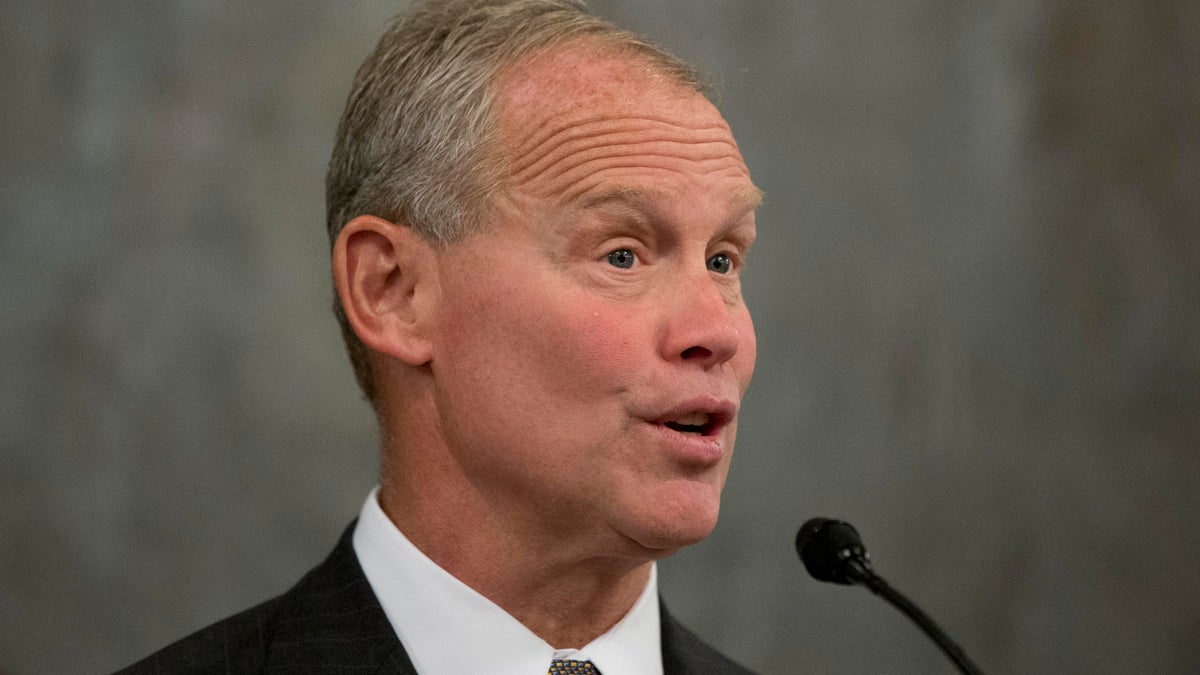Babies with Down syndrome become a flashpoint in Pa. abortion debate
The issue has aligned some disability rights advocates with pro-life politicians, pitting them against those who support abortion rights.

Pennsylvania House Speaker Mike Turzai (Emma Lee/WHYY)
Standing in the Capitol Rotunda in Harrisburg last week, Pennsylvania House Speaker Mike Turzai introduced about a dozen young people with Down syndrome and their families. Their faces humanize an issue that has aligned some disability rights advocates with anti-abortion politicians, pitting them against those who support abortion rights.
“Every human life is worth living and has dignity. Every human life,” said Turzai.
Turzai is the co-sponsor of a bill that would ban abortions based solely on a prenatal diagnosis of Down syndrome. He and other bill sponsors pointed to Iceland as a cautionary tale of a eugenics revival. Officials there say they have all but eradicated Down syndrome by having a nearly 100 percent abortion rate for those diagnosed in utero.
“This kind of practice of selectively removing individuals from society, unfortunately, is not new,” said state Sen. Scott Martin, the sponsor of a companion bill in the Pennsylvania Senate. “It was called eugenics. It was practiced in Nazi Germany.”
Karen Gaffney, the first person with Down syndrome to swim the English Channel, also spoke in support of the bill.
“We are what life is all about,” she said. “Our lives are worth living, and our lives are worth learning about.”
It’s tough to argue against that point, especially when looking at the supremely accomplished Gaffney. But abortion rights advocates argue that’s a misleading appeal to the heart. They say the move is merely an end-around to chip away at legal abortions.
“It’s just another attempt to ban an abortion by the Pennsylvania legislature,” said Dayle Steinberg, President and CEO of Planned Parenthood of Southeastern Pennsylvania. “They will try anything to eliminate access to abortion, and this particular inflammatory bill just proves that.”
Steinberg says the eugenics argument is also a smokescreen.
“I think it’s pretty shameful, really,” she said. “Abortion is a deeply personal decision that has to be left to a woman. Regardless of how you feel about abortion, it has to remain safe and legal, and it has to remain an option for women to consider.”
The ACLU sued to stop a similar law in Ohio on the grounds it violates the U.S. Constitution, and last week, a federal judge temporarily blocked the law from taking effect on March 23 when it was slated to start. A federal judge last fall struck down an Indiana law that would have banned abortions on the basis of fetal genetic abnormalities, saying it violated due process rights and the Roe v. Wade decision that guarantees women’s rights to seek abortions. North Dakota still has a similar law on the books.
Gov. Tom Wolf, who is up for reelection this year, says he’ll veto the bill if it reaches his desk. In a statement, Wolf’s office said “a woman’s health decisions should be made by a woman and her doctor, not politicians in Harrisburg.”
WHYY is your source for fact-based, in-depth journalism and information. As a nonprofit organization, we rely on financial support from readers like you. Please give today.




